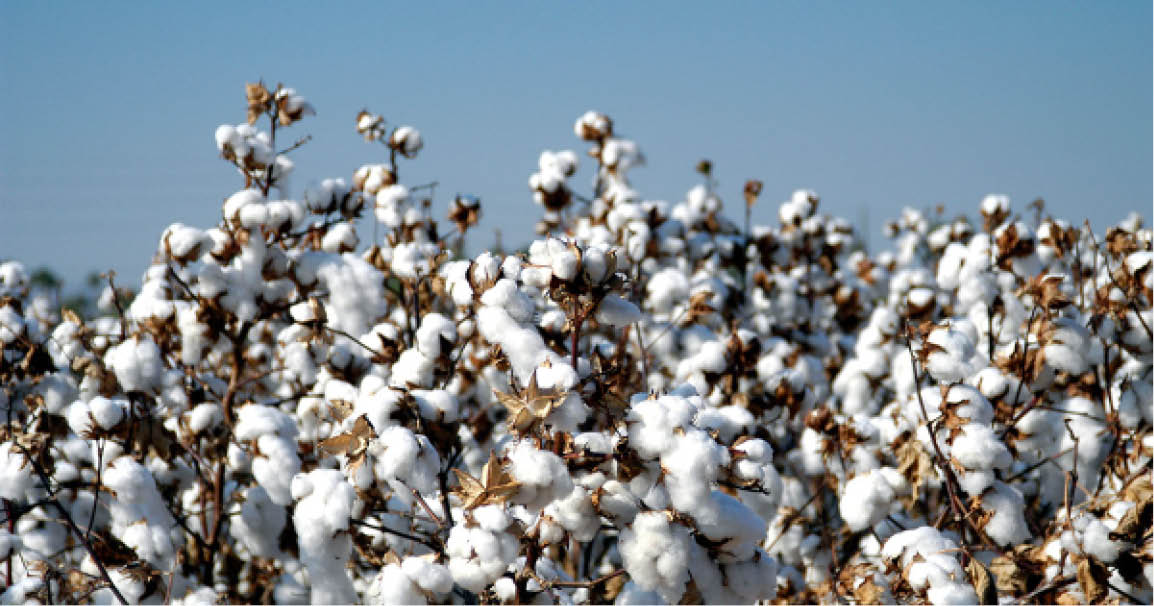Choose cotton hybrid that can revive textile industry, farmers told
Important players in the country’s agricultural sector have pushed farmers nationwide to switch to the already-commercialized Bt. cotton, which has the potential to restore Nigeria’s dead textile industry. According to their claims, extensive study over many years resulted in the creation of genetically modified hybrid cotton that can benefit farmers across all of Nigeria’s cotton-growing […]

Important players in the country’s agricultural sector have pushed farmers nationwide to switch to the already-commercialized Bt. cotton, which has the potential to restore Nigeria’s dead textile industry.
According to their claims, extensive study over many years resulted in the creation of genetically modified hybrid cotton that can benefit farmers across all of Nigeria’s cotton-growing regions.
Fishing bounces back in Maiduguri, revives job opportunities for youths
Can hi-tech fish farming replace traditional agriculture?
The National Agricultural Biotechnology Development Agency, the Open Forum for Agriculture Biotechnology (OFAB), Nigeria Chapter, in conjunction with the United States Department of Agriculture (USDA) and the National Cotton Association of Nigeria, during the recently event for cotton farmers in Abuja (NACOTAN) said the improved cotton holds the key.
One of the participants at the session, Mr. Ravi Kumar, the Business Manager of Mahyco Nigeria Agricultural Seed Company, said that an excellent variety of the seed known as Bollgard 2 cotton hybrids is now available in the market for the benefit of farmers.
He also told the audience that because the type is insect-resistant and capable of producing large yields, farmers may spray their crops with less labour.
Mr. Kumar said that cotton growers in the 12 states of Sokoto, Zamfara, Katsina, Niger, Kaduna, Kano, Plateau, Bauchi, Gombe, Adamawa, Taraba, and Cross River have received roughly 3,000 500 gram packets of seeds.
Prof. Abdullahi Mustapha, the Director General of NABDA, stated in his remarks that while the Nigerian government is still committed to reviving the textile industry through a revitalized cotton farming system, it is also keeping an eye out to make sure that seed companies do not compromise the quality necessary for the desired high yields.
Prof. Mustapha reassured farmers that the Bt cotton type already available on the market is safe for the environment when he urged them to use it.
“All of Nigeria’s cotton-growing zones are suited for the production of these Bt cotton cultivars. They also have early maturity, fiber length of 30.0 to 30.5 millimeters, fiber strength of 26.5 to 27.0g/tex (tenacity), and micronaire (strength) of 3.9 to 4.1 in addition to the pest-resistant features. Bt Cotton varieties will save farmers the trouble of contending with the local conventional variety, which is no longer accepted at the international markets,” he explained.
Recent efforts to increase the agricultural sector’s contribution to economic growth in Nigeria have emphasized the value of cotton production in boosting the country’s economy. Bt. cotton thus offers hope for the restoration of the textile industry because the commercialization of the crop has sparked a revolution that will enable Nigeria make up for its lack of cotton output.
With the following development of the textile sector, the groundwork has been laid for self-sufficiency in the production of cotton as an industrial raw material. The productivity data of the enhanced cotton types harvested from farmers’ fields has given rise to confidence that Nigeria’s dormant textile sector may soon come to life. The Bt cotton industry will give Nigerian farmers the power to benefit from higher output.
Dr. Rufus Ebegba, Director General of the National Biosafety Management Agency (NBMA), stated that because cotton is a significant cash crop in the nation, government organizations interested in biotechnology and biosafety concerns pay close attention to cotton seeds.
Ebegba also disclosed that Bt. cotton is a product of modern biotechnology and that the “ government of Nigeria, through the NBMA has put in place world class system to protect the interest of Nigerians and the environment in the application of modern biotechnology and use of GMOs.”
The National President of Cotton Farmers Association of Nigeria (NACOTAN) Achimugu Anibe in his opening remark, said “farmers have witnessed productivity and high yield since the advent of Bt cotton.”
